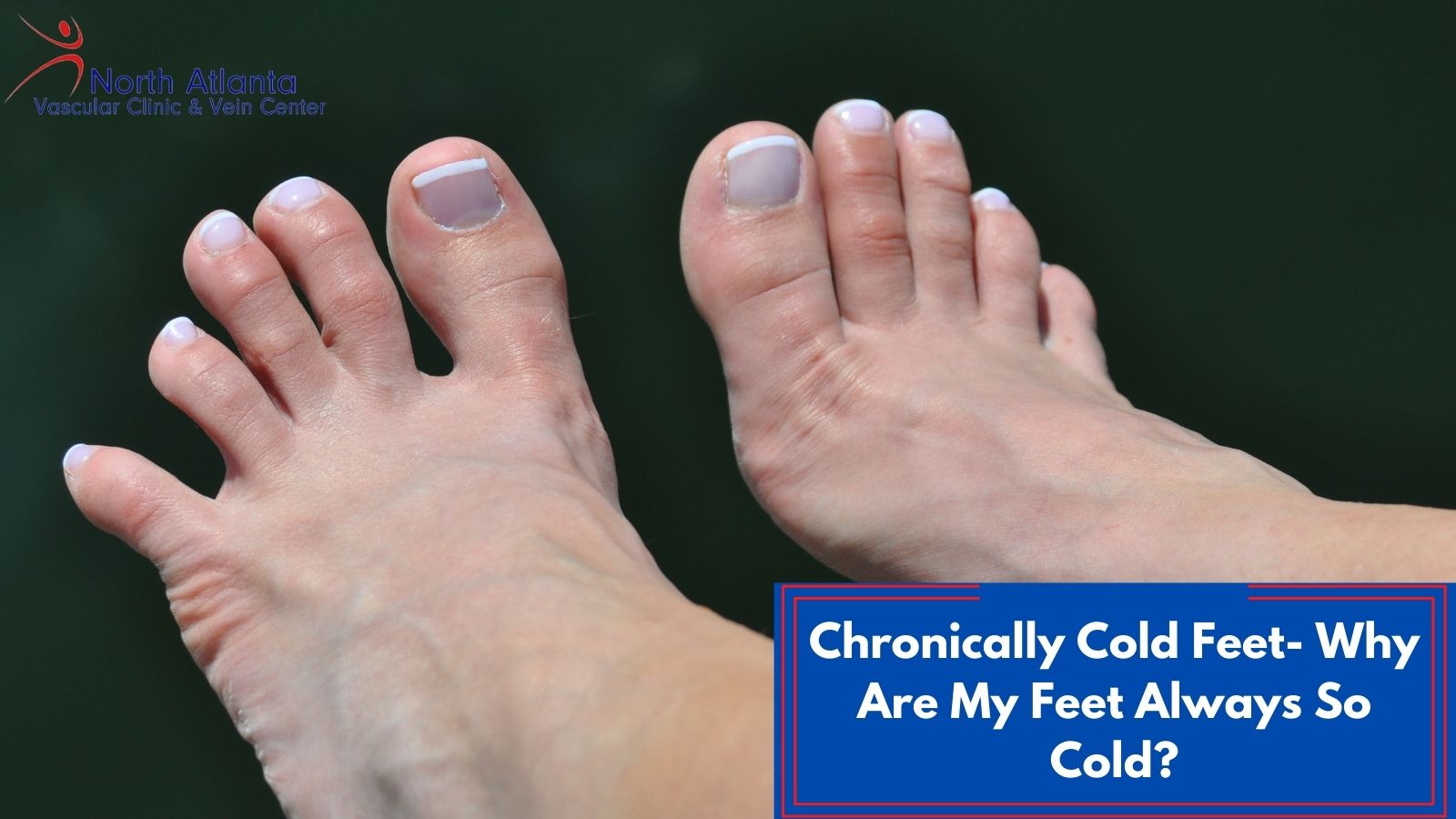Experiencing cold feet is common in the winter. However, experiencing it throughout the year might be due to your body’s natural response to the temperature or medical conditions that need treatment including, stress, anemia, and an underactive thyroid.
Learn more about the causes and symptoms of cold feet and how to deal with them.
Causes of Cold Feet
Lack of warmth can result in cold feet, but besides that, there are other causes, including:
- Poor Circulation: Sitting for long periods, smoking, and a heart problem reduces blood circulation, making it difficult for your feet to get warm blood.
- Anemia: Anemia occurs when you do not have sufficient red blood cells to transport oxygen from your lungs to the rest of your body, causing cold feet. It can also be caused due to internal bleeding or an iron or vitamin deficiency. Your doctor can diagnose whether you have anemia and how you can address it.
- Hypothyroidism: Hypothyroidism (underactive thyroid) is a disease where your thyroid gland does not produce sufficient thyroid hormone. This interferes with your body’s metabolism that controls heartbeat and temperature, leading to reduced circulation that causes cold feet.
- Raynaud’s Disease: Raynaud’sDisease increases your body’s sensitivity to cold. It also causes the narrowing of arteries in your feet, preventing normal blood flow and making them cold. When the temperature drops, your toes, and fingers may feel numb and frozen, sometimes appearing pale and blue. As your feet get warm later, they may sting and turn reddish. Cold weather, stress, anxiety, or air conditioning can cause this condition.
- Stress: Whenever you feel stressed out, your body will usually redirect your blood flow away from your feet and towards your core. This decreases the blood flow to your feet, making them cold.
- High Cholesterol: High cholesterol and inflammation in your blood vessels may increase your risk of circulation problems, also known as arterial disease, that causes cold feet.
- Type 1 and Type 2 Diabetes:
Diabetes can lead to narrowing of the arteries and a reduced blood supply to the tissues, causing cold feet. Also, it can cause the feet to feel cold due to nerve damage. Consult your doctor if you are experiencing any symptoms of vein damage on your feet, and watch out for any cuts or injuries.
Other possible causes of cold feet are:
- Peripheral Vascular Disease (narrowing of the arteries due to plaques): This condition can slow down or block the blood circulation in your feet, causing cold feet.
- Arteriosclerosis: In this condition, the blood vessels carrying oxygen and nutrients from your heart to your body become stiff and thick and can hamper your blood circulation.
- Buerger’s Disease: This disease is linked to toba cco use and causes inflammation of the blood vessels of your hands and feet, which might result in clot formation or infection.
Symptoms of Cold Feet
- Sensitivity to cold
- Feeling of numbness as you get warm or relieve stress
- Weakness and pain in your feet
- Your skin changes color when you are stressed or cold
Cold Feet Treatment
Follow these remedies to keep your feet warm:
- Lower your cholesterol levels through diet and medication
- Wear socks or slippers
- Stretch or move your feet
- Quit smoking
- Manage your stress
- Get plenty of vitamin B12, iron, and folate for improved blood circulation
When Should You See Your Doctor?
Visit your doctor if you are experiencing cold feet and:
If you experience cold feet or any of these symptoms, schedule an appointment with North Atlanta Vascular Clinic and Vein Center. We offer the best cold feet treatment in Johns Creek, Lawrenceville, Roswell, and Cumming.
- Weight alterations
- Joint pain
- Skin does not feel cold to the touch, indicating a neurological condition
- Sores on your toes and fingers needing more time to heal
- Fatigue
- Fever
- Skin rash or thickening
